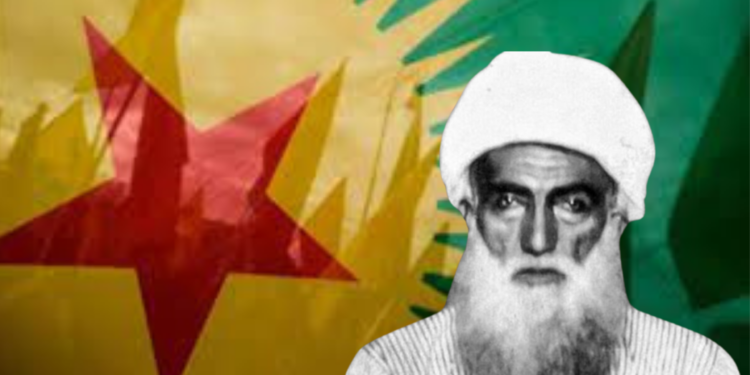The current violent atmosphere in Turkey relates to the regional Kurdish leader Sheikh Said’s execution on 29 June 1925 after he led a revolt against Ankara, the Kurdistan Communities Union (KCK) said in a written commemoration.
The KCK stresses the establishment of a new state based on Turkishness, as outlined in the Treaty of Lausanne, which we are now commemorating its centenary anniversary. It emphasises that the Kurdish people were denied their rights as their homeland was divided and fragmented. The umbrella organisation further adds, “The state, constructed on the foundation of Turkishness, has made the realisation of Kurdish genocide its primary objective.”
The Sheikh Said rebellion (Serhildana Şêx Seîd) marked the first significant Kurdish uprising against the newly-formed Turkish Republic following the signing of the Treaty of Lausanne in 1923. Historian Robert W. Olson described it as “the first large-scale nationalist rebellion by the Kurds.”
The rebellion was met with a forceful response from Turkish authorities. They utilised continual aerial bombardments and concentrated military forces to suppress the revolt. In the aftermath, more than 7,000 individuals faced prosecution through independence tribunals, and over 600 people were executed.
Highlights from the KCK statement on lasting impact of the Sheikh Said rebellion are as follows:
“Sheikh Said and his comrades stood against the denial of Kurdish existence and identity, as well as the betrayal and injustice inflicted upon the Kurdish people by the newly formed Turkish state. They fought for the freedom of the Kurdish people.
…
The Turkish state executed Sheikh Said and his fellow advocates for Kurdish freedom, and committed a great massacre. In fact, this incident marked the beginning of a process of genocide against Kurdistan. The execution of Sheikh Said and his comrades holds historical significance in revealing the nature of the newly formed state and its approach towards the Kurds.
…
The genocidal and colonial Turkish state continues to maintain its antagonistic stance towards the Kurds, persistently pursuing the goal of Kurdish genocide. Today, this policy is being implemented through the fascist AKP-MHP government. The AKP-MHP government aims to complete the Kurdish genocide officially initiated by the Treaty of Lausanne in the second century of the republic.
…
Through the struggle led by our movement, the genocidal and colonial Turkish state’s policies of Kurdish genocide have been prevented from reaching their goals, and the revival of the Kurdish people has been ensured.
…
Realising that the Kurdish genocide cannot be achieved as long as the Kurdish Freedom Movement exists, the Turkish state has mobilised all its power to eliminate the Kurdish Freedom Movement since that day.
…
On the anniversary of their executions, we, as the Kurdish Freedom Movement, once again commemorate Sheikh Said and his comrades.
…
The Kurdish people, by resisting and intensifying the struggle against all attacks and elimination plans of the AKP-MHP government, will prevent the realisation of the goals of the Kurdish genocide policies and defeat genocidal colonialism and its collaborating betrayal.”










